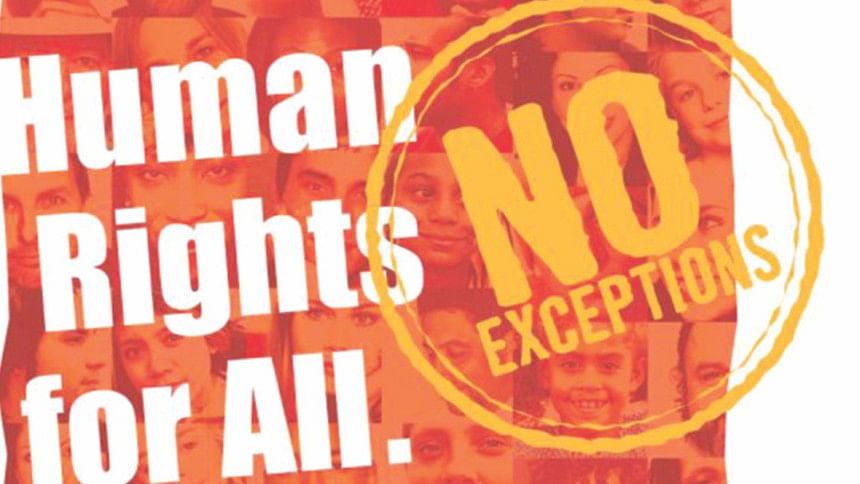Decoding HR perceptions in Bangladesh

No doubt, thanks are owed to Md. Rizwanul Islam for his bold observation that there are some misconceptions about the functionality of human rights among common folk and human rights activists alike in Bangladesh ['Stretching the Boundaries of HR', The Daily Star, 8 December 2015]. Mr. Islam pointed out in particular that in Bangladesh crimes are often treated as human rights violations. While appreciating Mr. Islam's views, I thought I would share a few insights I gained from my work as consultant responsible for drafting the initial State party report of Bangladesh on the International Covenant on Civil and Political Rights (ICCPR), Bangladesh's Second Cycle Universal Periodic Review Report to the UN Human Rights Council and a number of shadow reports to UN human rights treaty bodies, for the Bangladesh National Human Rights Commission (JAMAKON).
In addition to the widespread misperception in Bangladesh that crimes automatically qualify as human rights violations, many persons seem unaware that international human rights law safeguards the rights of those accused of having committed crimes. Core international human rights treaties, chiefly the ICCPR and Child Rights Convention, both of which Bangladesh has ratified, guarantee fair trial rights to the accused as well as redress for victims of crimes. In Bangladesh, many people might be surprised to learn that no universal convention addresses the rights of the victims of conventional crimes and that international human rights treaties generally do not define crimes, nor do they expressly oblige a state party to ensure punishment of any specific crimes with a very few exceptions such as torture or enforced disappearance etc.
Such misconceptions could be more understandable if we consider the results of the Baseline Survey carried out for the National Human Rights Commission in 2010. The Survey found that only 50 per cent of the entire participant sample had heard of the term 'human rights'. A follow–up survey in 2014 indicated that the ratio had risen to 68 per cent.
The net outcome of these misconceptions in popular perceptions of human rights is that while the State might get away with its failure to ensure human rights to its citizens without being held accountable, individuals risk becoming stigmatised as human rights violators and that could undermine their right to fair trial. The very behaviour of a lynch mob is perhaps a symptom of this attitude.
Popular perceptions of human rights are important because they signal how ordinary people define their relationship with the State. A State in which human rights culture is weak is bound to suffer from a legitimacy deficit. History shows that without respect for human rights no state can thrive well for very long. The Chair of the National Human Rights Commission, Professor Dr. Mizanur Rahman has rightly observed, “What else could be the reason for having a state other than full realization of human rights?” (JAMAKON Annual Report, 2014).
It must be remembered that human rights are for everyone, no matter who he or she is, friend or foe—that's what makes human rights universal, as values and also as norms. In the words of Dr. Lyal S. Sunga, Head of the Rule of Law program at The Hague Institute for Global Justice, “It is important to remember that human rights are for everyone, but especially for those that you, or society in general, may not like, because it is those very persons or groups who face the greatest threat from both the State and society at large, in terms of vulnerability and marginalization, as well as a lack of access to justice.”
The writer is an Advocate, Supreme Court of Bangladesh.

 For all latest news, follow The Daily Star's Google News channel.
For all latest news, follow The Daily Star's Google News channel. 



Comments